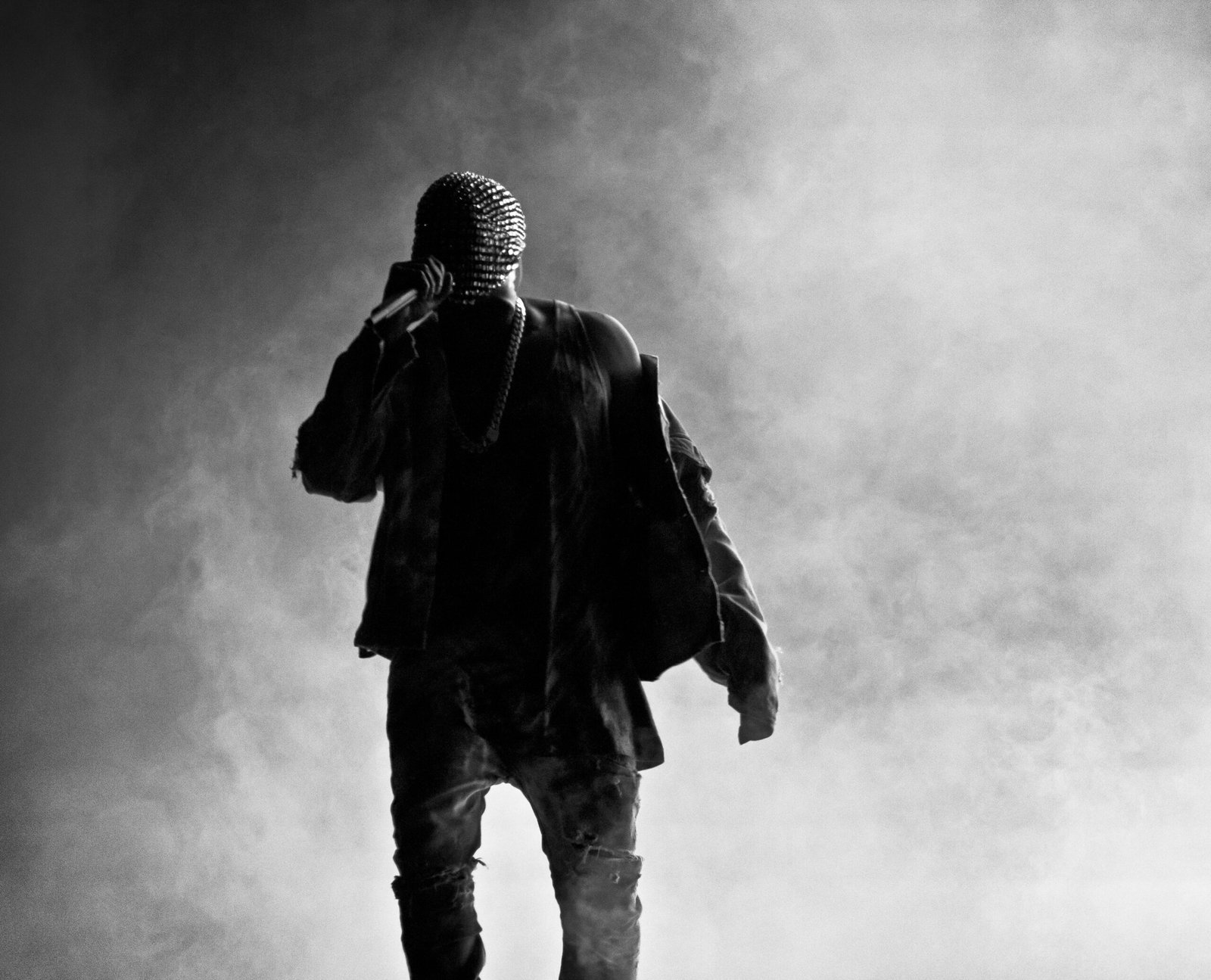
With a career spanning several decades, Marilyn Manson has built a reputation for pushing boundaries and challenging societal norms. His controversial image and provocative lyrics have made him both a beloved figure and a lightning rod for criticism. However, the recent assault allegations against Manson have taken the controversy surrounding him to a whole new level.
Multiple women have come forward with horrifying stories of abuse and manipulation at the hands of Manson. These allegations range from physical assault to emotional and psychological abuse. The stories paint a disturbing picture of a man who used his fame and power to exploit and harm those around him.
One of the most shocking allegations came from actress Evan Rachel Wood, who dated Manson in the early 2000s. In a powerful statement shared on social media, Wood accused Manson of grooming her as a teenager and subjecting her to years of abuse. Her bravery in speaking out has inspired others to come forward with their own stories, shedding light on a pattern of behavior that extends far beyond one individual.
As the allegations continue to surface, the music industry is grappling with how to respond. Many artists and industry professionals have condemned Manson’s actions and expressed their support for the victims. Record labels have dropped him, concerts have been canceled, and his music has been pulled from radio stations and streaming platforms.
However, the fallout extends beyond just Manson himself. The allegations have sparked a broader conversation about the culture of abuse and exploitation within the entertainment industry. It has forced a reckoning with the power dynamics that allow such behavior to persist and the need for systemic change.
These allegations against Marilyn Manson serve as a stark reminder that fame and talent do not excuse or justify abusive behavior. They highlight the importance of listening to and believing survivors, as well as holding those in positions of power accountable for their actions.
As more details emerge and the legal process unfolds, it remains to be seen what the future holds for Marilyn Manson. But one thing is clear: the shockwaves from these assault allegations will have a lasting impact on the music industry and society as a whole.
A Troubled History
Marilyn Manson, born Brian Hugh Warner, has long been known for his provocative and controversial image. With his eccentric stage presence and controversial lyrics, he quickly rose to fame in the 1990s as one of the most controversial figures in the music industry. However, behind the makeup and the outrageous costumes, it seems that there may have been a much darker side to Manson.
Over the years, there have been whispers and rumors about Manson’s behavior offstage. Stories of emotional and psychological abuse, as well as allegations of sexual assault, have circulated within the industry and among his former partners. However, it wasn’t until recently that these allegations gained significant attention and started to be taken seriously.
In February 2021, actress Evan Rachel Wood came forward with a shocking revelation. In a powerful statement posted on her Instagram account, Wood accused Manson of subjecting her to “horrific abuse” during their relationship. She described a pattern of manipulation, coercion, and physical violence that lasted for years. Wood’s brave admission opened the floodgates, and soon other women started to share their own experiences with Manson.
One of the most disturbing aspects of these allegations is the consistent pattern of behavior described by the accusers. Many of them recount eerily similar stories of Manson’s controlling and abusive tendencies. They speak of being isolated from friends and family, coerced into engaging in sexual acts they were uncomfortable with, and subjected to psychological manipulation and gaslighting.
As the number of accusers grew, so did the public outcry. The music industry, which had long turned a blind eye to Manson’s behavior, could no longer ignore the mounting evidence. Record labels, venues, and even Manson’s own band members started to distance themselves from him. Concerts were canceled, albums were pulled from shelves, and Manson’s career seemed to be in freefall.
However, Manson’s response to the allegations only added fuel to the fire. In a series of now-deleted Instagram posts, he vehemently denied the accusations and claimed that all his relationships were consensual. He portrayed himself as the victim, accusing his accusers of trying to destroy his career and reputation.
As the legal battle unfolds, the world is left to grapple with the question of separating the artist from the art. Manson’s music, once seen as a symbol of rebellion and freedom of expression, is now tainted by the allegations against him. Can we still enjoy his songs knowing what he is accused of? Should we separate the man from his art, or is it all irreparably intertwined?
The Allegations
In February 2021, actress Evan Rachel Wood took to social media to accuse Manson of years of abuse. In a shocking statement, Wood alleged that Manson had groomed and manipulated her when she was a teenager and subjected her to years of physical, emotional, and sexual abuse. Wood’s accusations quickly gained traction, leading to a wave of other women coming forward with similar stories.
Among the women who have accused Manson are several former romantic partners, including actress Esmé Bianco and model Ashley Morgan Smithline. Their stories paint a disturbing picture of a man who allegedly used his fame and power to control and abuse those around him.
Esmé Bianco, best known for her role in the hit TV series “Game of Thrones,” revealed that her relationship with Manson was characterized by coercive control and physical abuse. She claimed that Manson would often inflict pain on her without her consent, leaving her with bruises and scars. Bianco also alleged that Manson would dictate what she wore, who she could interact with, and even controlled her finances, isolating her from friends and family.
Ashley Morgan Smithline, a former girlfriend of Manson, shared a similar narrative of abuse. She described a relationship filled with manipulation, intimidation, and violent outbursts. Smithline claimed that Manson would frequently demean and belittle her, leaving her feeling worthless and trapped. She also alleged instances of sexual assault and coercion, stating that Manson would force her to engage in sexual acts against her will.
These allegations against Manson have shed light on the dark underbelly of the entertainment industry, where power imbalances and abusive behavior can go unchecked. The courage of these women in speaking out has ignited a long-overdue conversation about consent, abuse, and the need for accountability in the entertainment industry.
The Fallout
As the allegations against Manson continue to mount, the fallout has been swift and severe. Manson’s record label dropped him, and he was dropped from several upcoming projects, including a television series in which he had a recurring role. In addition, several venues canceled his scheduled concerts, and his music was removed from various streaming platforms.
While Manson has denied the allegations, claiming that all of his relationships were consensual, the evidence presented by the accusers has been compelling. Text messages, photographs, and other forms of documentation have been shared to support their claims, making it difficult for Manson to dismiss the allegations as baseless.
The impact of these allegations has extended beyond Manson’s professional life. Fans have expressed their disappointment and outrage, with many vowing to boycott his music and cancel their support. Social media has been flooded with discussions about the allegations, with the hashtag #CancelManson trending worldwide. This widespread condemnation has led to a significant decline in Manson’s public image, tarnishing his reputation and potentially affecting his future career prospects.
Furthermore, the fallout has also sparked a broader conversation about the music industry’s treatment of allegations of abuse and misconduct. Many have criticized the industry for turning a blind eye to such behavior, allowing artists to continue thriving despite their problematic actions. The Manson case has become a catalyst for change, with calls for greater accountability and transparency within the industry.
As the legal process unfolds, Manson may face further consequences if the allegations are proven true. Depending on the severity of the accusations and the jurisdiction in which they occurred, he could potentially face criminal charges and imprisonment. The fallout from these allegations is far from over, and the impact on Manson’s career and personal life is likely to be long-lasting.
Within the entertainment industry, power dynamics often play a significant role in enabling abusive behavior to go unchecked. The hierarchical structure of the industry, with powerful executives and artists at the top, creates an environment where those with less power are often afraid to speak out against misconduct.
Furthermore, the glamorization of fame and success can also contribute to a culture of silence. Many aspiring artists are willing to tolerate mistreatment in the hopes of furthering their careers, which only perpetuates the cycle of abuse. This toxic dynamic not only harms the victims directly involved but also sends a message to others that their voices will not be heard or taken seriously.
However, the allegations against Marilyn Manson have served as a wake-up call for the industry. Artists, activists, and fans alike are demanding change and accountability. This case has sparked a wave of support for survivors and a renewed commitment to dismantling the systems that protect abusers.
Organizations such as the Recording Academy and major record labels are now being pressured to take a more active role in addressing and preventing abuse within their ranks. This includes implementing comprehensive policies, providing support for survivors, and holding those responsible accountable for their actions.
Additionally, there is a growing push for increased diversity and representation within the industry. Many argue that a more inclusive and equitable environment will help prevent power imbalances and create a culture where abuse is less likely to occur.
It is important to note that this conversation extends beyond just the music industry. The film, television, and theater industries have also faced their fair share of scandals and allegations of abuse. The collective outcry against these abuses is indicative of a broader societal reckoning with power dynamics and the need for systemic change.
Ultimately, the allegations against Marilyn Manson serve as a pivotal moment in the ongoing conversation about abuse and power dynamics within the entertainment industry. They have reignited the urgency for change and highlighted the need for a comprehensive and sustained effort to create a safer and more inclusive environment for all.
Furthermore, the importance of speaking out against abuse extends beyond the entertainment industry. It is a societal issue that affects people from all walks of life. When victims bravely share their stories, it not only helps them in their healing process but also serves as a catalyst for change.
By speaking out, survivors of abuse challenge the prevailing culture of silence and shame that often surrounds these experiences. Their courage inspires others who may have been suffering in silence to find their own voices and seek the support they need. This collective empowerment can have a profound impact on breaking the cycle of abuse.
Moreover, speaking out against abuse creates a ripple effect that reaches far beyond individual cases. It raises awareness about the prevalence of abuse, educates the public about the signs and effects of abuse, and encourages communities to take action. This can lead to the implementation of policies and programs that support victims, hold perpetrators accountable, and prevent future instances of abuse.
Additionally, when survivors share their stories, they humanize the issue of abuse. They put faces and voices to the statistics, reminding society that these are real people who have endured unimaginable pain. This personal connection increases empathy and understanding, making it harder for society to turn a blind eye to the problem.
Furthermore, speaking out against abuse can also provide a sense of validation and closure for survivors. It allows them to reclaim their power and control over their own narratives, breaking free from the chains of silence and shame. It is a way for them to say, “I am not defined by what happened to me, but by how I have overcome it.”
In conclusion, the importance of speaking out against abuse cannot be overstated. It is a powerful tool for change, both on an individual and societal level. By supporting and believing survivors, creating safe spaces for them to share their stories, and taking action to prevent future abuse, we can work towards a world where everyone is free from the shackles of abuse.




